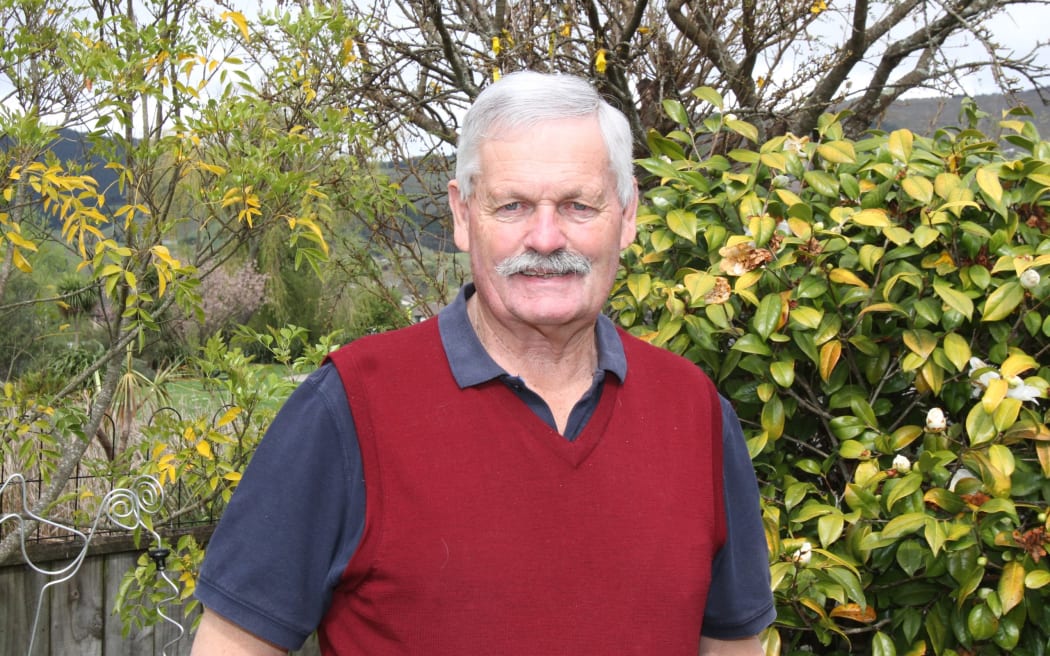
The wastewater treatment plant on Bell Island is facing both immediate and long-term challenges exacerbated by climate change. Photo: LDR / supplied / NRSBU
The effects of climate change are now impacting on Nelson-Tasman's wastewater treatment facility on Bell Island, with new land needing to be found for its long-term viability.
One of the immediate concerns for the facility - which serves Nelson City and Tasman communities as far as Wakefield and Māpua - is it being inundated with excess wastewater during major rainfall events.
Climate change increases the frequency and intensity of extreme weather events.
There were two periods during the 2022/23 financial year when inflows exceeded the treatment plant's discharge capacity and extensions to its discharge duration were requested until the wastewater level was reduced to a manageable level.

"It's front of mind, and something we have on our programmes," said Alec Louverdis, Nelson City Council's group manager infrastructure.
"We got hammered in August [2022], we had May again, three weeks ago we had another intensive rainfall event. This is just going to be the norm, and until such time as we get on top of this, those flows will be what they are, unfortunately."
Nathan Clarke, the council's general manager regional services, added that the inundation would have infrastructural implications and could impact resource consents.
"There's a bunch of work that we've got to do around that."
The threat of sea-level rise was also a concern for the wastewater treatment facility which operates on the low-lying Bell Island in the Waimea Inlet.
While the facility was thought to be able to be used until at least 2080, the Nelson Regional Sewerage Business Unit (NRSBU) was proposing that money was allocated for the purchase and designation of land for a future wastewater treatment plant in the 2033/34 financial year.

Tasman District Councillor Kit Maling said the two councils need to "bite that bullet" and commit to a future land purchase. Photo: LDR / Max Frethey / Waimea Weekly
"At some stage we have to bite that bullet," said business unit chair and Tasman District councillor Kit Maling. "The longer you leave it, the harder it is to find a suitable piece of land."
Tasman council's waters and wastes manager Mike Schruer agreed that acquiring land sooner rather than later was "prudent".
"We've already got two treatment plants that will no longer be upgraded on their current sites," he said. "We are finding it extremely difficult to find suitable land for that."
A sea defence bund was being constructed in the meantime to help protect the treatment plant.
Several pump stations were also at risk from sea-level rise in the future.
Almost $15.7 million was proposed to be allocated for the land purchase across five years from the 2029/30 financial year, with the bulk of the costs slated for the 2033/34 year.
The matter of a land purchase will come before the Tasman District and Nelson City Councils when the NRSBU presents its draft activity management plan for 2024-2034. Both councils will have the opportunity to provide feedback on the plan.
The responsibility for wastewater management was slated to eventually be removed from councils, and so from the NRSBU, and given to a new water services entity as part of the government's Affordable Waters reform.
But Maling said it was still a good idea to document and plan for future challenges.
"You should signal it so that whoever takes over the responsibility of this going forward is aware that these are the issues that we're facing."
Local Democracy Reporting is Public Interest Journalism funded through NZ On Air

